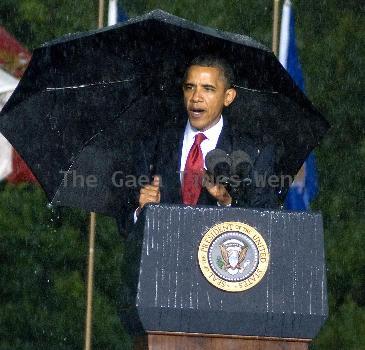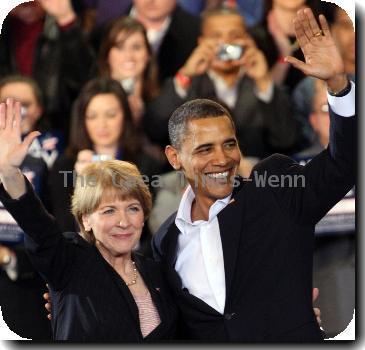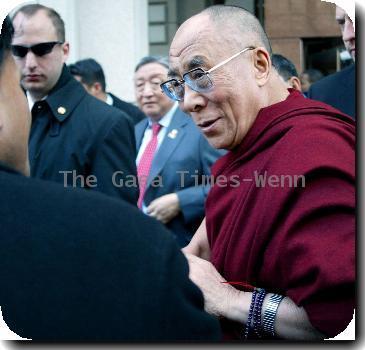Top Army general in Afghanistan argues for patience, says progress occurring in 9-year-old war
By Anne Flaherty, APMonday, August 16, 2010
Petraeus: Time is key for progress in Afghanistan
WASHINGTON — The next several months in the Afghanistan war will prove to be a crucial test of President Barack Obama’s politically risky strategy to send tens of thousands more troops to the fight.
Army Gen. David Petraeus says he plans to show by December that the 100,000 U.S. forces are helping to stem a violent insurgency and giving the Kabul government space to grow. Petraeus, the new war commander, said he has already begun to see progress, albeit slowly.
Adding to the optimism this week is Defense Secretary Robert Gates, who suggested he might retire next year after the “surge” of troops has had a chance to work.
“I think that by next year I’ll be in a position where, you know, we’re going to know whether the strategy is working in Afghanistan,” Gates told Foreign Policy magazine in an interview released Monday.
Last fall, Obama authorized to grow the force in Afghanistan by 30,000 to 100,000 troops — triple the level from 2008. Obama’s Democratic supporters have reluctantly swung behind the plan, but lawmakers are beginning to question whether Afghanistan can be won.
Arguing for patience even as U.S. casualties rise, Petraeus said that it was only in the last few weeks that the war plan had been fine-tuned and given the resources that it required. “For the first time, we will have what we have been working to put in place for the last year and a half,” he said.
“It’s a gradual effort. It’s a deliberate effort,” Petraeus said. “There’s no hill to take and flag to plant and proclamation of victory. Rather, it’s just hard work.”
Petraeus spoke on NBC’s “Meet the Press” on Sunday and in interviews with The Washington Post and The New York Times. On the job as war commander for only a few weeks, he is trying to reassure Americans that the 9-year-old war is worth fighting, and to argue that President Barack Obama’s redrawn strategy is only beginning to take root.
Petraeus took the job from cashiered Gen. Stanley McChrystal with the understanding that some U.S. forces will come home next summer, as Obama has promised.
Yale University announced Monday that it had hired McChrystal to teach a graduate level seminar on leadership on its New Haven, Conn., campus. McChrystal was quoted in the release as saying he looked forward to sharing his “experiences and insights as a career military officer.”
Pentagon Press Secretary Geoff Morrell confirmed Monday that Gates has set his sights on leaving next year.
A Republican and holdover from the Bush administration, Gates had agreed to stay on at Obama’s request. The move was intended to maintain stability at a time of two wars, although Gates has been open about his desire to return to civilian life in his home state of Washington.
Morrell said that “2011 makes sense to him” because it would give Gates time to oversee the major offensive under way in Afghanistan but bow out before the 2012 presidential election season.
Gates has been defense secretary since December 2006.
White House spokesman Bill Burton, traveling with Obama, said that Gates had served with distinction, and he declined to comment on Gates’ future or who might succeed him.
On NBC, Petraeus did not appear to rule out that he might eventually tell Obama that a drawdown should be delayed. “The president and I sat down in the Oval Office, and he expressed very clearly that what he wants from me is my best professional military advice.”
Petraeus described Afghanistan as a tough and enduring fight that would require its “character and its size being scaled down over the years.”
If the U.S. loses, there would likely be a bloody civil war followed by a takeover by extremists. If the U.S. succeeds and Afghanistan stabilizes, the country could become the region’s new “Silk Road” with the potential to extract trillions of dollars worth of minerals, he said.
But the goal is not to turn Afghanistan into an industrialized democracy, he said. Even if the nation relies heavily on tribal councils for governance, the central government in Kabul could still run the nation effectively without influence from extremist groups such as al-Qaida.





